London 23rd of june 2007
THE LONDON SOCIETY OF THE NEW LACANIAN SCHOOL
The question and the place of science as adjacent to the psychoanalytic truth concerned Lacan all the more, and Popper’s denouncement of psychoanalysis as failing the test of science, namely that of verifiability, contributed to this discourse. What would be the science, Lacan asked, in which psychoanalysis could be included? With the development of neurosciences, and the growing fetishisation of the brain, the place of the subject remains marginalised. Science’s search for the real as such nevertheless remains linked to knowledge. On the other hand, this unconditional pursuit of the real knowledge prompts science to give a proof of what in the domain of religion remains as a contingency of faith, namely the existence of God. Once science could postulate to achieve that, and demonstrate the existence of a factor, whether a brain cell or a gene, that ‘realises’ what a religious believer believes in, then science and religion would converge into one.
Against these ambitions, which situate a strand of scientific search on the delusional path where the symbolic order, namely that which constitutes a specific and unique condition for each and everyone to speak, is excluded, Lacan spoke of the discourse of science. He took as a starting point a construction of discourse – as elaborated in the recently published Seminar XVII: The Other Side of Psychoanalysis – namely a bond between speaking beings where repression takes place of contradiction and the truth of addressing an other that of verbatim evidence. With four modalities for the subject to address the Other, Lacan showed that there is a link between the discourse of the hysteric and that of science, the difference being that science forecloses the subject as the agent of wanting to know. While the superego continues to command: keep on knowing, science has no need for anybody to be present to know.
With a regulation of psychoanalysis, and talking cures in general, in the offing, and with the ongoing desubjectivisation of the discourse of science, another agency emerged in the post-modern democracy, namely that of the State. At the level of the subject, science found an ally in the state as an agent to regulate and redistribute all ills and happinesses under the roof of the ideal. On the other hand, the all-seeing agency of the state appears as an heir of the divine attribute that once made God capable of seeing all without being seen. The secularisation of the power of religion, on the one hand, and the universalisation of science as foreclosing the subjective responsibility, on the other, seem to have given the agency of the state a new impetus of all-knowing perversion. Following Lacan’s formulations of the four discourses, we can now ask how to write the logical co-ordinates of the agency of the state. Has the state, whether in democratic or totalitarian form, become another instrument of opposition to the absolute difference and particularity of the subject as it addresses the desire of the Other? Or is the state a specific modality of the discourse of the master, which is the discourse of the unconscious that pushes its power of acting to that of the exception?
These are some of the problems and questions we propose to raise in the course of the presentations, discussion and roundtable debate that will animate the day of work.
Bogdan Wolf
El Estado, la Ciencia y el Discurso del Psicoanálisis: En contra del Acomodamiento de la (In)Felicidad
Desde sus comienzos, el psicoanálisis se ha entrampado en una compleja relación con la ciencia y la religión. Para Freud, el psicoanálisis era una ciencia, mientras sometiera su nuevo método a los viejos requerimientos científicos de cuestionamiento y prueba. Durante la temprana época de su trabajo, especialmente, la posición de Freud era aquella del científico, en la medida en que tomaba la afirmación del paciente como una prueba de otro estrato del aparato psíquico. Pero si esto lo llevó al descubrimiento del inconsciente, desde ese momento ya no era posible para Freud someter el inconsciente al escrutinio científico, en la medida en que no había lugar allí para la contradicción.
La pregunta y el lugar de la ciencia, como adyacente a la verdad del psicoanálisis interesó de manera importante a Lacan, y la denuncia que Popper hizo referida al psicoanálisis, en el sentido de fallar a la prueba de la ciencia, especialmente aquella de la comprobación, contribuyó a este discurso. ¿Cuál sería la ciencia, preguntó Lacan, en que el psicoanálisis podría ser incluido?
Con el desarrollo de las neurociencias, y la creciente fetichización del cerebro, el lugar del sujeto queda al margen. La búsqueda que la ciencia hace del real como tal permanece articulada al conocimiento. De otro lado, esta búsqueda incondicional del conocimiento real empuja a la ciencia a dar una prueba de aquello que en el dominio de la religión queda como contingencia de la fe, especialmente la existencia de Dios. Una vez que la ciencia pueda ser candidata a lograr esto, y demostrar la existencia de un factor, ya sea una célula del cerebro o un gen, que “haga real” (“realises”) aquello en lo que un religioso creyente cree, entonces la ciencia y la religión convergerán en uno.
En contra de estas ambiciones, que sitúan una rama de la búsqueda de la ciencia en el ilusorio camino en que el orden simbólico, ese que constituye una específica y única condición para que cada quien y todos hablen, es excluido, Lacan habló del discurso de la ciencia. El tomó como punto de partida una construcción del discurso – como fue elaborado en el recientemente publicado Seminario XVII: El Reverso del Psicoanálisis – fundamentalmente una manera de lazo entre los seres parlantes, en donde la represión toma lugar a partir de la contradicción, y la verdad se dirige a otro lugar que la evidencia encontrada en la reproducción exacta (verbatim). Con cuatro modalidades en que el sujeto se dirige al Otro, Lacan mostró que hay una conexión entre el discurso de la histeria y aquel de la ciencia, la diferencia es que el de la ciencia forcluye al sujeto como agente del deseo de saber. Mientras, el superyó continúa comandando: sigue sabiendo, la ciencia no tiene necesidad de que alguien esté presente para saber.
Con la regulación del psicoanálisis, las curas por la palabra en general, en el horizonte, y con la creciente des-subjetivación del discurso de la ciencia, otro agente emerge en la democracia posmoderna, principalmente aquel del Estado. En este nivel del sujeto, la ciencia encontró un aliado en el estado como agente para regular y redistribuir todos los dolores y felicidades bajo el cielo del ideal. De otro lado, el agente del estado que siempre-mira (todo-lo-ve) aparece como un heredero del atributo divino que una vez hizo a Dios capaz de ver todo sin ser visto. La secularización del poder de la religión, de un lado, y la universalización del la ciencia al forcluir la responsabilidad subjetiva, del otro, parece haber dado a la agencia del estado un ímpetu nuevo de sabelo-todo perverso.
Siguiendo la fórmula de Lacan de los cuatro discursos, podemos ahora preguntarnos cómo escribir las coordenadas lógicas de la agencia del estado. ¿Es que el estado, bajo su forma democrática o totalitaria, se ha convertido en otro instrumento de oposición a la absoluta diferencia y particularidad del sujeto en la medida en que dirige el deseo del Otro? ¿O es que el estado constituye una modalidad del discurso del amo, que es el discurso del inconsciente, que empuja su poder de acción hacia la excepción?
Estos son algunos de los problemas y preguntas que nos proponemos platear en el curso de las presentaciones, discusiones y debate en mesas redondas, que animarán el día de trabajo.
Bogdan Wolf
E-mail: Secretary@LondonSociety-nls.org.uk







